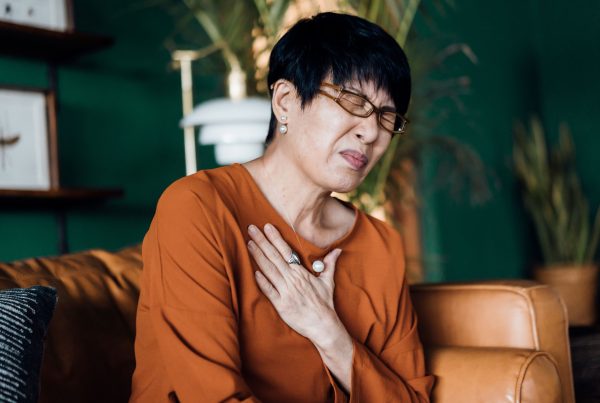The winter and holiday seasons can bring a mix of emotions for many of us. Here are some tips that can help you have a happy and healthy holiday season.
It’s the most wonderful time of year, right? So, why am I feeling so miserable?”
MetroHealth Psychologist Sheerli Ratner, PhD says “It’s perfectly normal to feel a range of emotions throughout the holidays – even frustration, sadness or anxiety. But there are strategies we can use to ensure we’re putting our best selves forward.”
While it’s important to take care of your mental health year-round, the holidays, in particular, can trigger uncomfortable feelings for many of us. It might be the sadness of missing a loved one during family gatherings or the stress brought on by never-ending to-do lists.
It could even be the gloomy weather we’re all too familiar with in Northeast Ohio. Shorter days and considerably less sunshine can impact our mood.
Seasonal Affective Disorder is a depressive disorder linked to reduced exposure to light in the winter months, which can affect your circadian rhythm and sleep pattern,” said Sarah Benuska, PhD, a MetroHealth psychologist.
The good news is, if you find yourself feeling down this season, there are plenty of ways to boost your mood. Here are some strategies Dr. Benuska suggests ― find the combination that works best for you!
Importance of Family Health History
Knowing your health history can help doctors assess your risk of developing various illnesses such as:
- Type 2 diabetes
- High blood pressure
- High cholesterol
- Heart disease
- Asthma
- Stroke
- Single gene disorders (sickle cell, cystic fibrosis, hemochromatosis, etc.)
- Most types of cancer (colon, breast, prostate, etc.)
In the United States, heart disease, stroke, cancer, asthma, and diabetes are still far more likely to kill you if you are a minority. Additionally, minorities are more than two times as likely to die from pregnancy-related causes than white women, while Black women are more than three times as likely to die. Knowing the medical conditions your parents, grandparents and other relatives have had can help you and your doctor work together to keep you healthy.
- Mindfulness– Practice clearing your mind and being present in the moment. There are plenty of apps available that offer guided meditations and breathing exercises – many that take only a few minutes to complete. One simple way is to take a series of deep, intentional breaths – in through the nose, out through the mouth.
- Light exposure therapy: Some evidence suggests that using light boxes, which mimic natural daylight, for 20 to 30 minutes a day can elevate your mood.
- Enjoy the sunny days: Getting some sun and being in nature can combat depression and anxiety, so put on your warm outdoor wear and enjoy a walk.
- Get enough exercise: Regular physical activity can relieve depression and help you sleep better. Even taking a few 10-minute walks every day can improve how you feel.
- Make sleep hygiene a priority: To help ensure healthy sleep patterns, go to bed and wake up at the same time every day.
- Maintain social ties: Make plans to see friends and family.
- Do activities/hobbies you enjoy: Set time aside for your favorite activities like reading, listening to music, painting, or singing to make you feel better.
- Turn off your screens: Shutting down your technology to enjoy board games or cooking a healthy meal with your family and/or friends is a definite mood booster.
- Eat a healthy diet: Leafy greens such as spinach and kale, whole grains like brown rice and quinoa, and lean proteins such as chicken and fish can decrease depression. It’s important to get enough sleep, eat healthy food and limit your alcohol intake.













